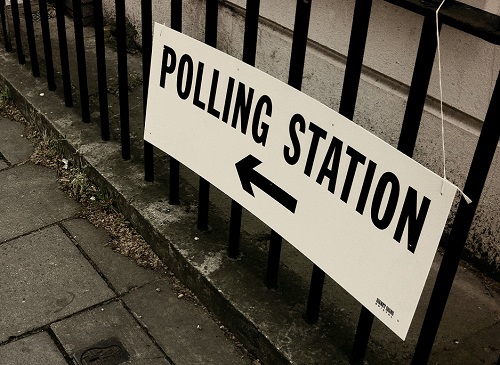
Today, voters across the UK went to the polls to elect Members of Parliament in the snap election called on April 18. American observers and people of faith should care about the results, because they could affect the transatlantic alliance in numerous ways.
First, the election could deepen, or chill, the “special relationship” between the United States and the UK. Prime Minister Theresa May and President Donald Trump have established a cordial relationship and share a symbiotic goal. May seeks the support of the nation’s majority Leave voters, and Trump hopes undermining the EU will realign Europe in a nationalist/populist direction. To encourage the process, Trump hopes to sign a transatlantic free trade deal as soon as the UK withdraws from the EU customs union in March 2019.
Although exceedingly unlikely, were Labour Party leader Jeremy Corbyn to become prime minister, it would dampen relations between the two nations. Corbyn wavered on whether he would meet with Trump during a foreign visit, and he asked London not to “roll out the red carpet” for the U.S. president. He later offered to show Trump around Finsbury Park Mosque in London, once home to the radical Islamist teachings of Abu Hamza, “so [Trump] could understand multicultural society.”
Second, the election will affect the balance of power in Europe. May called the election to secure a mandate for a “hard Brexit,” walking away with “no deal” rather than accepting “a bad deal” to stay in Brussels’ good graces. Labour Party MPs, who opposed Brexit but modified their position due to its popularity among their core voters, seek to limit the scope of that withdrawal. In the unlikely event that the Tory lead diminishes, members of the Labour Party and Scottish National Party (SNP) could tilt the UK back toward a continental Europe that increasingly sees itself as a rival to, or at least a strategic competitor with, the United States.
Third, the future of America’s closest ally is at stake. May campaigned on “strong and stable leadership” to lead the UK into a post-Brexit future. She envisions an era of independence, free trade, and deregulation after the UK slips the strictures imposed by EU bureaucrats. She has vowed to crack down on extremists, a point driven home as voters cast their ballots in polling places the government had to secure against a growing terrorist threat.
The Labour Party’s mantra – “for the many, not the few” – promises a future of class warfare, tax and spending increases, and closer relations with the supranational EU. Corbyn has promised to fight any attempts to turn the UK into “a low-tax haven.” Corbyn has had overly kind words for terrorist organizations including Hamas, Hezbollah, and the IRA. This week, it was revealed that MI5 monitored Corbyn for 20 years, concerned that he may be a subversive.
People of faith should care whether the UK maintains its economic vitality and forges trade ties that could greatly benefit the developing world, potentially causing its agricultural sector (and hence, global food production) to flourish. They should care about maintaining a strong U.S.-UK alliance, which has fought for religious liberty and other transatlantic values for more than a century. And all people should be concerned about checking the spread of radical jihadist violence and securing the safety of the British people.
Despite a number of campaign missteps, polls still show May increasing the Tory majority in the House of Commons from 17 seats to 50. Pollsters underestimated the Conservative vote in the 2015 election and famously forecast that last June’s Brexit referendum would fail.
Polls closed at 10 p.m. local time, 5 p.m. Eastern. Most results are not expected be known until 2 a.m. UK time.
(Photo credit: John Keane. This photo has been cropped. CC BY-SA 2.0.)

